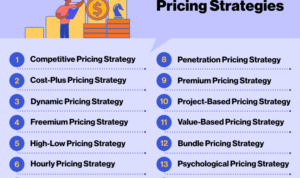Event Planning for Brands sets the stage for this enthralling narrative, offering readers a glimpse into a story that is rich in detail with american high school hip style and brimming with originality from the outset.
When it comes to creating unforgettable experiences for brands, the planning process involves a delicate balance of creativity, strategy, and execution. From product launches to experiential marketing events, every detail plays a crucial role in shaping brand perception and engagement. Dive into the world of event planning for brands and discover the art of crafting memorable experiences that leave a lasting impact.
Understanding Event Planning for Brands

Event planning plays a crucial role in brand promotion, creating opportunities for brands to engage with their target audience, showcase their products or services, and enhance brand visibility. It allows brands to create memorable experiences that leave a lasting impression on attendees, ultimately increasing brand awareness and loyalty.
Key Elements in Planning Events for Brands
- Define objectives: Clearly Artikel the goals and objectives of the event, whether it is to generate leads, increase sales, or launch a new product.
- Target audience: Identify the target demographic and tailor the event to appeal to their interests and preferences.
- Budget management: Allocate resources effectively to ensure a successful event within the allocated budget.
- Venue selection: Choose a venue that aligns with the brand image and can accommodate the expected number of attendees.
- Marketing and promotion: Develop a comprehensive marketing strategy to create buzz and attract attendees to the event.
- Logistics and coordination: Coordinate all aspects of the event, from catering to audiovisual equipment, to ensure a seamless experience for attendees.
Event Planning for Corporate Brands vs. Consumer Brands
- Corporate brands: Corporate events tend to focus on networking, building relationships, and showcasing industry expertise. The planning process may involve partnerships with other businesses and industry influencers.
- Consumer brands: Events for consumer brands are more consumer-centric, focusing on creating unique experiences for customers, generating brand advocacy, and driving sales. The planning may involve interactive activities, product demonstrations, and social media integration to engage attendees.
Types of Events for Brand Promotion
When it comes to promoting a brand, there are various types of events that can be utilized to create buzz and engage with the target audience. These events serve as opportunities to showcase products or services, interact with customers, and build brand awareness.
Product Launch Events
Product launch events are a great way to introduce a new product or service to the market. These events generate excitement and anticipation among consumers, influencers, and the media. By hosting a product launch event, brands can create a memorable experience for attendees, showcase the features and benefits of the new product, and generate media coverage. This helps in building brand credibility, increasing brand visibility, and driving sales.
Experiential Marketing Events
Experiential marketing events focus on creating immersive brand experiences for consumers. These events allow customers to interact with the brand in a meaningful way, leading to a deeper connection and brand loyalty. By engaging the senses, emotions, and intellect of attendees, experiential marketing events leave a lasting impression and help in building brand affinity. Whether it’s through pop-up shops, brand activations, or interactive experiences, these events offer a unique opportunity to showcase the brand personality, values, and offerings in a memorable way.
Budgeting and Financial Planning

When planning a brand event, it is crucial to create a budget to ensure all expenses are accounted for and the event runs smoothly. Financial planning plays a key role in the success of any brand event, as it helps in allocating funds effectively and minimizing unnecessary costs.
Tips for Creating a Budget
- Start by listing all potential expenses, including venue rental, catering, marketing materials, and staff salaries.
- Research current market rates for event services to ensure your budget is realistic and achievable.
- Allocate a contingency fund for unexpected expenses that may arise during the planning process.
- Regularly review and update your budget as new expenses or cost-saving opportunities come up.
Allocating Funds Effectively
Effective allocation of funds is essential to ensure that each aspect of the event receives the necessary resources for success. Here’s how you can allocate funds effectively:
- Identify key priorities for the event, such as entertainment, decorations, or technology, and allocate a larger portion of the budget to these areas.
- Consider negotiating with vendors for better rates or discounts to stretch your budget further.
- Track expenses closely to avoid overspending in one area and coming up short in another.
Importance of Financial Planning, Event Planning for Brands
Financial planning is crucial for ensuring the overall success of a brand event. By carefully budgeting and allocating funds effectively, you can maximize the impact of the event while staying within budget constraints. Without proper financial planning, the event may face budget overruns, leading to a compromised experience for attendees and potential damage to the brand’s reputation.
Marketing and Promotion Strategies for Brand Events
To make your brand event successful, it is crucial to have a solid marketing and promotion plan in place. This involves creating buzz around the event, attracting attendees, and ensuring that your brand message reaches your target audience effectively.
Creating a Marketing Plan for Brand Events
- Identify your target audience: Understand who you want to attract to your event and tailor your marketing efforts accordingly.
- Utilize multiple channels: Use a mix of social media, email marketing, influencers, and traditional advertising to reach a wider audience.
- Create engaging content: Develop content that is visually appealing, informative, and shareable to generate excitement about your event.
- Collaborate with partners: Partner with other brands, influencers, or organizations to expand your reach and attract more attendees.
Role of Social Media in Promoting Brand Events
- Social media platforms like Instagram, Facebook, Twitter, and LinkedIn are powerful tools for promoting brand events.
- Use hashtags, live videos, stories, and targeted ads to create hype and engage with your audience before, during, and after the event.
- Encourage user-generated content: Encourage attendees to share their experiences on social media using branded hashtags to amplify your event reach.
- Monitor social media metrics: Track engagement, reach, and sentiment to measure the effectiveness of your social media promotion strategies.
Examples of Successful Promotional Strategies in Brand Event Planning
- Flash sales and exclusive offers for early bird registrations to create urgency and drive ticket sales.
- Influencer partnerships to leverage their reach and credibility to promote your event to their followers.
- Interactive contests and giveaways on social media to increase engagement and generate excitement leading up to the event.
- Collaborative marketing campaigns with sponsors or other brands to reach a broader audience and increase brand visibility.
Vendor Management and Partnerships
When it comes to planning brand events, selecting the right vendors and building strong partnerships are crucial aspects that can make or break the success of the event.
Process of Selecting Vendors for Brand Events
- Identify the specific needs and requirements for the event.
- Research and shortlist potential vendors based on their expertise, experience, and reputation.
- Reach out to vendors for quotes, proposals, and references.
- Conduct meetings or interviews to assess their capabilities and compatibility with your brand.
- Negotiate terms, pricing, and deliverables before finalizing contracts.
Importance of Building Strong Partnerships in Event Planning for Brands
Building strong partnerships with vendors and other stakeholders is essential for the success of brand events as it ensures seamless collaboration, mutual understanding, and trust throughout the planning and execution process.
Tips on Negotiating Contracts with Vendors and Partners
- Clearly define expectations, deliverables, and timelines in the contract.
- Negotiate pricing based on the value provided rather than solely focusing on cost.
- Include clauses for contingencies, changes, and cancellations to protect both parties.
- Establish open communication channels and regular check-ins to address any issues promptly.
- Seek mutually beneficial outcomes that prioritize the success of the event and the long-term relationship.





